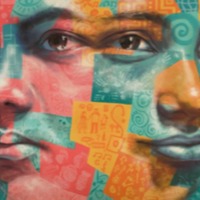
Nia
There are an estimated 520,000 experiencing modern slavery and human trafficking in the Arab States (GSI 2018). The Arab States are made up of 11 countries including Bahrain, Iraq, Jordan, Kuwait, Lebanon, Oman, Qatar, Saudi Arabia, Syria, United Arab Emirates and Yemen. The region is diverse, spanning the wealthier Gulf Cooperation Council (GCC countries) and countries such as Jordan, Lebanon, and Iraq, which are dealing with the impact of ongoing conflict in Syria. When considering the forms of modern slavery, the largest share of those in modern slavery were victims of forced labour (2.2 victims per 1,000 people), while the rate of forced marriage was 1.1 victims per 1,000 people. Over half of those in forced labour were held in debt bondage, with this form of trafficking affecting women at a greater share than men. Men and Women - primarily from South and South East Asia and Africa - voluntarily migrate to Arab States for work in a number of sectors, including construction and domestic service. Upon arrival they experience withholding of payment, debt bondage and abuse. Nia was not making enough money to take care of her children when a friend’s sister offered her a housekeeping job in Saudi Arabia. While initially she was treated well, after a few months Nia was subjected to physical abuse and withholding of pay. Nia was able to escape this situation after six months and return to Kenya. However, Nia still needed to provide for her children and travelled abroad for work two more times to Qatar and Libya, both time being mistreated and unpaid. Nia finally received assistance from HAART Kenya and set up her own salon in Kenya which was going well, until the COVID-19 pandemic left her unable to run her business. Nia is now receiving temporary financial support from HAART Kenya.